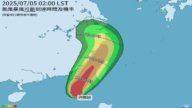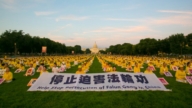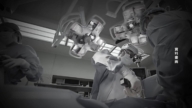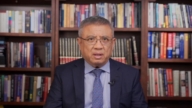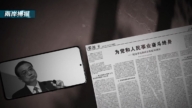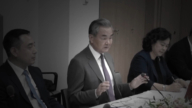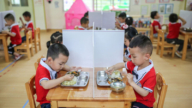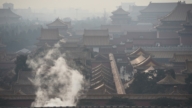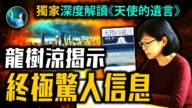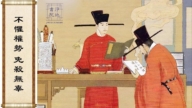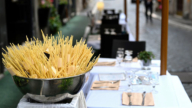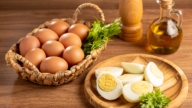【新唐人2011年2月10日讯】大陆央行8号发布公告,从周三起将一年期存、贷款利率分别上调25个基点,达到3.00%和6.06%。这是央行自去年10月份以来,第三次上调基准利率。分析人士认为,这次加息符合预期,但是难以有效遏制当前居高不下的通货膨胀。
中国人民银行于2月8号晚间突然宣布:自2月9号起,上调金融机构人民币存贷款基准利率,一年期存贷款基准利率分别上调0.25个百分点。这是大陆央行在兔年里的第一次加息,也是自金融危机以来的第三次加息。
对于这次加息,英国《金融时报》认为,这是当局迫于通胀压力,担忧物价失控而采取的举措。文章分析指出,1月份的消费者价格指数(CPI)升幅很可能创下金融危机以来的新高,最乐观的估计也在5.5%以上。
另外,今年冬天以来,大陆众多省份遭遇罕见旱情,山东、河南等粮食主产区,农业减产的可能性很大。全球食品价格指数连续7个月上涨。中国的房价依然快速上涨。此外,货币的超量供应并没有得到改善,仅1月份,就有超过1万亿的货币供应。
《金融时报》文章还指出,上述几个因素都可能导致物价失控、资产价格泡沫加大。
而对于这次加息的效果,经济学家普遍表示,很难遏制通胀。中国著名的经济学家茅于轼认为,这次加息幅度太小、时间也太晚,存款利率仍然远低于通胀率,这种负利率造成了资产泡沫,是很危险的。
茅于轼:“这么低的加息根本解决不了,还反而是鼓励了通胀。因为你利息率是负的嘛!”
美国穆迪经济网站的经济学家图•派克德向《美国之音》表示,很长时间以来,中共政府一直在提升利率和银行准备金率,但是并没有有效的遏制通胀或是经济过热。
数据显示,中国去年6次上调银行准备金率,并在去年10月以来3次加息。但12月份的消费者价格指数(CPI)较去年同期上涨4.6%,仍然居高不下。
里昂证券(CLSA)首席的中国经济学家罗福万 (Andy Rothman)警告说,提高利率对遏制通胀意义不大。因为这不会对粮食价格造成影响,粮食价格上涨主要是受恶劣天气推动的。
联合国粮农组织8号表示,中国的冬小麦共种植1400万公顷,其中约516万公顷面临干旱的威胁。严重干旱给中国的小麦价格造成压力,1月份的面粉价格比前两个月上涨了8%。
对于央行为什么加息缓慢,茅于轼认为,这是为了保护国有企业的利益,而普通民企则借不到钱。
茅于轼:“保护借款人的利益,损害放款人的利益。借款人主要是国企、国有大企业,所以就是对国有企业一种偏爱。”
“凯投国际宏观咨询公司”的资深中国经济学家马克•威廉姆斯预计,央行在第二季度可能还会再次加息。
新唐人记者秦雪、李谦、萧宇采访报导。
China Raises Interest Rates in Vain to Curb Inflation
On Feb. 8, China’s central bank announced to increase
1-year deposit rate to 3.00% and lending rate to 6.06%.
It is the 3rd time it raises interest rates since Oct. 2010.
Analysts believe the interest hike was expected,
but it won’t effectively curb the high inflation.
In the evening of Feb. 8, People’s Bank of China
suddenly announced to immediately increase
both the base rate and 1-year deposit rate by 0.25%.
This is the first interest rate increase in 2011
and the 3rd increase since the financial crisis broke out.
UK’s Financial Times analyzes that this is measures
taken by the authorities under the pressure of inflation
the fear of uncontrollable rise of merchandize prices.
January’s CPI is likely to peak since the financial crisis.
The most optimistic estimate is 5.5% or above.
Since the start of winter, many Chinese provinces
suffer from unprecedented droughts.
It is likely that the major grain producing provinces
like Shandong and Henan will suffer reduced harvest.
Global CPI has been rising continuously for 7 months.
China’s housing prices are still increasing rapidly.
The currency oversupply situation hasn’t improved.
In Jan. alone, 1,000 billion yuan was supplied.
Financial Times said, all of above mentioned factors
may cause merchandize prices to rise uncontrollably,
and the bubble of housing prices to inflate.
Economists generally believe that the recent
rate increase this won’t be able to curb the inflation.
Mao Yushi, a renowned economist in China said,
the interest increase was too small and too late.
The interest rate is still far below the inflation rate,
which will create real estate bubbles and is dangerous.
Mao: Such a small interest increase would not work.
On the contrary, it will raise inflation,
because your net interest rate is negative.”
Tu Parkard, economist of Moody’s, told VOA,
for a long time, the CCP government has been
increasing interest rates and bank reserve ratio,
but it didn’t curb inflation or the overheated economy.
China raised the bank reserve ratio 6 times in 2010,
and raised interest rates 3 times since last October.
However, December’s consumer price index (CPI)
rose 4.6% from a year earlier, still remaining high.
Investment firm CLSA’s chief China economist
Andy Rothman warned that raising interest rates
have little effects on curbing inflation,
because rates wouldn’t impact the food prices.
Food prices increase mainly due to the bad weather.
UN Food and Agriculture Organization (FAO) said,
China has 14 million hectares of winter wheat,
of which 5.16 million hectares face the threat of drought.
Severe drought pressures China’s wheat price.
In Jan, flour price increased 8% from 2 months ago.
Why does the central bank raise interest rates slowly?
Mao believes that this is to protect state-owned firms.
Private enterprises won’t be able to borrow money.
Mao: Protecting the borrowers’ interests,
at the expense of the lenders’ interests.
The borrowers are mainly state-owned enterprises.
It has a partiality for state-owned companies.
Consulting firm Capital Economics’ senior economist
Mark Williams expects that China’s central bank
may raise interest rates again in the 2nd quarter.
NTD reporters Qin Xue and Li Qian


